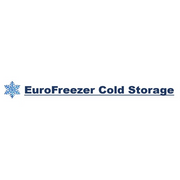3 Common Mistakes to Avoid When Shipping Frozen Food

Frozen food storage and transportation is a vital element in modern supply chains, ensuring customers and residents in even the most inaccessible region get the food they need while helping suppliers thrive. As advanced and reliable as this process is, however, there are many common mistakes which can jeopardize the security of shipments and disrupt logistical arrangements. Here are a few mistakes to keep in mind and avoid.
What Are Some Common Frozen Food Storage and Shipping Mistakes?
1. Improper Packaging
Packing frozen and refrigerated foods in improper materials is one of the most common mistakes, and it’s usually the cause of most cases of damage, product loss, and other issues. Poor or inappropriate packing materials could even cause a shipping carrier to refuse to carry your cargo, and you may need to invest in new or additional materials before your goods are finally ready.
If you’re shipping frozen foods, the best way to protect your products is by wrapping them in at least one inner waterproof layer and a sturdy outer layer to protect them from physical damage.

2. Listing the Wrong Shipping Weight
Accurate shipping weights are crucial to meeting strict regulations as well as enabling shipping carriers to accurately work out reasonable costs for fuel, maintenance, and other important expenses. Unfortunately, many food producers lack the equipment needed to precisely weigh their products, forcing them to estimate instead.
While an estimated weight can be a valuable figure for securing a quote for frozen food shipping, a more precise number will be needed before goods can be shipped. Reputable logistics companies have certified scales on-site and will therefore be able to account for any differences in weight and costs accordingly.
3. Miscalculating Shipping Time
Before any frozen food items can be shipped, it’s necessary to first consider how long they’ll remain frozen. This will give you a window of time in which it will be necessary to keep your goods refrigerated.
It may be tempting to seek out the lowest possible freight rate to save on costs, but this could end up leaving your products without the refrigeration they need. Instead, work with a shipping expert to determine how long your shipment will take and whether any additional supplies or expenses will be necessary to ensure it arrives fresh.
Food producers in the Miami and Fort Lauderdale areas can turn to EuroFreezer Cold Storage when they’re in need of dependable frozen food storage services. This state-of-the-art facility, located in Hialeah, FL offers over 14,000 square feet of refrigerated storage space and is kept cool using top-quality cooling and temperature regulation equipment. Call (305) 392-5555 to schedule a free consultation, and visit their website to learn more about their services.
About the Business
Have a question? Ask the experts!
Send your question

